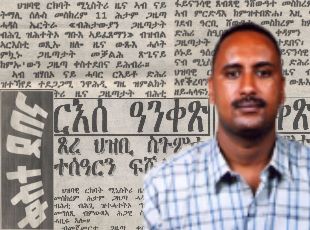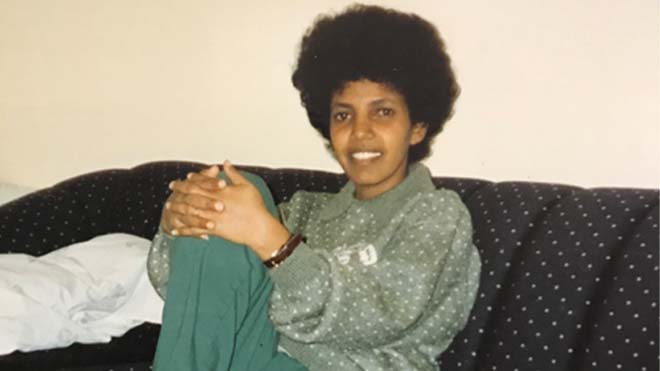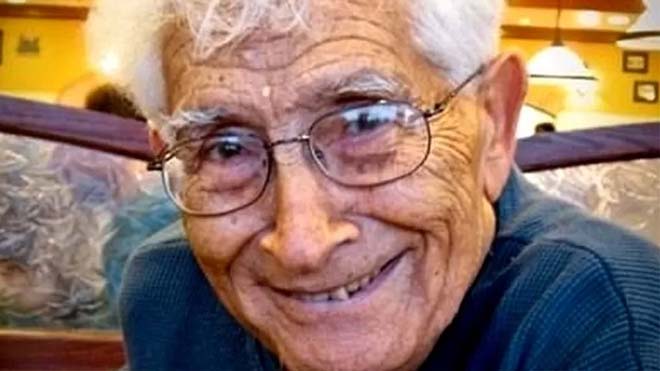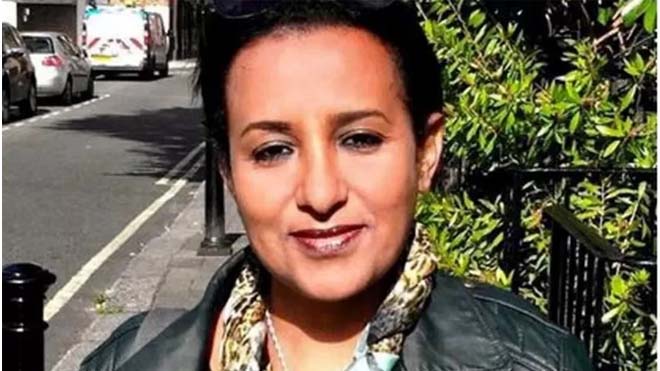The Role of Free Press in Democratic Process in Eritrea: When the protector becomes a censor
 The following paper was slated for the symposium organized by Eritrean Global Solidarity organization on the 20th of June 2009. Due to reasons which I don’t want to go in to detail and beyond my control, (I am sure the smart reader will know it by now,) it couldn’t be presented on time. One of my favorite Palestinian journalists, Munir Abu Rizek, said that the independent journalist is a unique creature in that he is hated squarely by many, even by those seemingly opposing groups, including, strangely enough, by those who profess for free press and liberal democracy. He gave an example that after he launched an independent paper, in two years time, most of his friends start running away from him; in four years, some of his blood relatives start shunning him; and in six years his wife abandoned him! Yes the independent journalist has very few friends and this is true almost in every nation and society. People naturally want to be admired, loved, appreciated and exalted. No one wants to be criticized, reprimanded, judged or even commented upon.
The following paper was slated for the symposium organized by Eritrean Global Solidarity organization on the 20th of June 2009. Due to reasons which I don’t want to go in to detail and beyond my control, (I am sure the smart reader will know it by now,) it couldn’t be presented on time. One of my favorite Palestinian journalists, Munir Abu Rizek, said that the independent journalist is a unique creature in that he is hated squarely by many, even by those seemingly opposing groups, including, strangely enough, by those who profess for free press and liberal democracy. He gave an example that after he launched an independent paper, in two years time, most of his friends start running away from him; in four years, some of his blood relatives start shunning him; and in six years his wife abandoned him! Yes the independent journalist has very few friends and this is true almost in every nation and society. People naturally want to be admired, loved, appreciated and exalted. No one wants to be criticized, reprimanded, judged or even commented upon.
It is sad to see those who advocate for free press and independent media to be its censors and suppressers. Barbaric regimes like those in Eritrea arrest, torture and kill heroic journalists all the time. Those pseudo-democrats and wolves in sheepskin here in the western world, though they cannot arrest and outright torture an independent journalist here, try all kinds of means and methods to suppress, censor, throttle and demoralize the autonomous journalist and his or her writings. The worst one, without a doubt, is censorship, especially the art and technique of quasi, not overt kind of censorship and control of thought and ideas. This kind of subtle censorship, though not overtly visible
and cannot be seen by the average person or reader, is painful and has a devastating effect to the independent thinker and journalist who thinks he lives in the free world and his nightmarish days are gone.
Esteemed readers, before I present the full version of my paper, let me state briefly some of the highlight and happy moments of the symposium (at least for me). There were wonderful papers and proposals presented by various speakers. From the predatory nature of the current Eritrean leadership to the situation of religious freedom in Eritrea, the symposium was full of rich and diversified speakers and ideas. It is heartening to see Eritrean intellectuals of all walks of life and political affiliations sitting together and discussing amicably (a rarity among Eritrean groups) the current and future destiny of the people and nation of Eritrea.
I was so pleased to see the forum recognizing and awarding the steadfast advocate of free press and uncle (he is too young to be called a father) of independent media of Eritrea, the one and only Tesfaldet Alem Meharenna or Tes as many of know him. The contribution made by Tes, to independent media and freedom of speech and writing in Eritrea and Eritreans inside and in the Diaspora is an exceptional feat and will have a very special chapter when the history of Eritrea and Eritrea’s struggle for democracy and emancipation will be written. Tes’ Asmarino and all the great patriotic Eritrean websites and web related media forums are beacon of hope and aspiration to millions of Eritreans all over the world. From refugees in their twenties in the deserts of Libya to old fathers in their twenties in Australia and elsewhere, you are the torch bearers of liberty, freedom and the coming peaceful Eritrea with sane leadership. The other eminent Eritrean and father of Eritrean constitution and democratic struggle (Yes you are qualified to be a father) is the respected Doctor and Abonan and Ayanan is Doctor Bereket Habteslassie. I am not going to do a disservice by numerating Doctor Bereket’s struggle, unfaltering fight for rule of law, constitutionalism and free elections in Eritrea. It has its own golden place in future Eritrea’s history.
The symposium also recognized a dedicated Eritrean struggle supporter and advocate, Doctor Tricia Heppner known by many as Tirhas or Hatney Tirahas. Doctor Tricia and other foreigners and non Eritrean like Mr. John Stauffer, a former peace crop volunteer and avid Eritrean democratic struggle supporter and others deserve a special recognition and respect. It is not easy to be affiliated with strange, complex and difficult causes like ours and thanks for standing with our small enigmatic nation.
Papers presented by Doctor Assefaw, Doctor Habtu, Doctor Uqbay the Bostonian , beautiful poetry read by Kiros Yohannes, Simon the Shimelba, Daniel of New York and others was touching and entertaining at the same time. I was glad to see Kiros Yohannes, member of Eritrean independent journalists in exile and his beautiful book of poetry wich was launched at the symposium. I am also delighted to see long disappeared faces of the free press like the brave journalist Tedros Mengistu , editor in chief of Selam news paper who escaped all the dangers and imminent death in Eritrea, and Solomon Gebreyesus (the headache of PFDJ AND NUEYS), another gallant journalist. My special appreciation for all who come from far away places like Canada and Europe and all the states of America. I am especially touched to see my university mates Haile and the ever smiling and always happy member of Kestedemena news paper editorial board Yosief Aalazar all the way from Toronto Canada. Greetings and peace be with you dear brothers and sisters and fellow Eritrean compatriots and hope to see you in other venues and events. Over all it was a wonderful symposium and despite the chaotic and unorganized nature of the conference (I will have some thing to say about this in coming papers), it was good and kudos to organizers, team members and the highly dedicated hard working humble members of Eritrean Youth Renaissance, EYR DC chapter members.
Now, Allow me to present my otherwise relegated paper and enjoy your reading.
The story and experience of the private press in post-independent Eritrea is brief, sad and full of tragic events and consequences. The entire free press has been shut, many journalists been incarcerated under inhuman conditions, some have died and continue to die till this day and their exact whereabouts is unknown as of this time. And there is no end in sight to this tragedy. Though the brutality of the current Eritrean regime is not aimed solely at the free press and its main actors, without a doubt the press is the prime victim of this henous criminal act against the Eritrean people by the PFDJ regime.
Even with the usual dismal record of African governments towards the press, what is taking place in Eritrea is a unique and disastrous experience. The ruthless actions against independent journalists and even government media journalists by the regime of President Isaias Afewerki is unprecedented and hence the name given by many as Africa’s North Korea. One by one Eritrean journalists and media personalities are dying and disappearing from Eritrea. Eritrea and North Korea are the only two countries in this planet without any kind of independent press or free news outlet services. Many agree that this trend will continue as long as the Asmara regime is in power. Even as recently as a month ago, 4 prominent government journalists were taken to unknown destination after a brief stint at the infamous Adi-Abeyto prison.
The price paid by gallant Eritrean independent press journalists and other media personalities in Eritrea and their overall struggle for freedom of press and expression will be remembered by generations to come and I am not going to discuss it all here.
My main focus will be the role of free independent media in the overall democratic process and fight for liberty and justice in Eritrea.
As you know autonomous free media and the right to express freely are the main pillars of any healthy democratic system in the world. In the democratic equation, there are three types of identities: the politicians, the public, and the publication. The three elite ”P’s” of the democratic process which, through their correlation with each other, make modern democracy unique compared to other political philosophies. The relationship between the politician and the public, through the media and journalism particularly, is distinctive in a democracy, and has a very special connection with the electoral process, which separates true democracies from their imitations. Remember, even the U.S.S.R. had elections, but that certainly did not make it a democracy. Liberated media is fundamentally crucial in genuine democratic societies because it practices the theory of including the public in governmental affairs, and commemorates the democratic idea that reality can only be relative and truth and facts are to be deemed authentic by individuals, not administrators.
In the complex, bitter, grueling and sometimes seemingly hopeless Eritrean political arena, the press’s and free media’s role is unique and historical. The free press and the few lucky surviving journalists and the media branch of the opposition group’s or parties are for the most part in exile. The main actors of free press in Eritrea currently are the websites and web-based media such as radio, TV, video and the likes. Few newspapers, magazines and books are being published by émigré Eritrean all over the world. Mostly they are doing a great job, taking into consideration the challenging life of being an expatriate; the monstrous nature of the current Eritrean government and the overall below average political consciousness of many Eritreans.
But there are challenges and some impediments in this regard and I don’t want to pass these paramount issues here. The main concern for me and many other Eritreans in this democratic endeavor is the issue of censorship and limiting freedom of expression. Censorship or controlling of thought and idea is one of the most dangerous forms of oppression a press can think of. Many think censorship emanates from tyrannical regimes such as ours but censorship can come from democratic forces too and it can take many shapes and forms.
The rationale for censorship is different for various types of information censored. There are all kinds of censorships and excuses to censorship and I don’t want to go into detail here. There are universally accepted censorships of disgusting obscene materials, of degrading nature, of matters relating to one’s faith and culture and, in time of war, of certain sensitive materials. Besides these, censorship will serve no purpose, except as a tool of totalitarian regimes and political parties and governments all over the world.
The majority of Eritrean web based press owners, resistance group media outlets and other publication journalists are men of good standing with utmost desire for betterment of Eritrea and Eritreans. But some times, and in some cases most of the times, they are participants in the act of censorship and knowingly or unknowingly contribute to the stifling of not only the free press and media, but to the very idea of freedom and democracy and liberty itself. Almost all opposition groups and resistance movements had enshrined the notion of freedom of expression in their charters, constitutions, principles, etc. But in practice there are problems and if the issue of censorship or self-censorship is not tackled at this stage, I am afraid it will be ingrained in our political culture and thinking and the role of the free press will be severely limited and curtailed in future democratic Eritrea. Freedom of the press doesn’t mean one has to agree with one’s idea or one has to conform to one political party’s agenda or philosophy. Freedom of expression doesn’t mean one’s writing has to please one webmaster’s tastes and feelings. Freedom of expression means the unalienable right to agree or disagree, to support or to oppose, to express your feeling with out fear or any kind of prejudice or harm.
There are a lot of otherwise honorable Eritrean individuals and political factions of high caliber, but when it comes to freedom of expression and freedom of ideas they get very low marks. If freedom of press or the right to write, talk or discuss freely means conforming or agreeing all the times with one’s idea and principle, then there is no need for free press and this is communism and fascism pure and simple. I remember arguing with a certain political party webmaster about my article and his refusal to post it. His unintelligent reasoning for not posting my article was, because my article didn’t mention political prisoners of his party in Eritrea. Just like that!! There are a lot of similar instances and I don’t want to take your time and I am sure you had had similar experiences.
In conclusion, free independent press and the right to freely express your thought and idea are very important part in the overall democratic process and struggle in Eritrea. Freedom of expressing and free press are unique and special kind of fighting tools which many fail to grasp, including many “democratic forces”. The Eritrean democratic and freedom loving groups, parties, social a and political activists and personalities should embrace, respect, and make use of the right of freedom of speech and the role of free unfettered independent press and media. All those who advocate, strive, work and dream for democratic Eritrea should realize that the first political litmus test is whether they are for freedom of speech and expression. It is easy to point fingers and accuse others as tyrants, dictators, censors, etc, but we have to be careful not to be meandering accomplices of barbaric, undemocratic lawless regimes and fascists in the matter of press and the right of citizen’s unalienable, God-given privilege and birth right to think, write and freely convey with others.


![[AIM] Asmarino Independent Media](/images/logo/ailogo.png)






